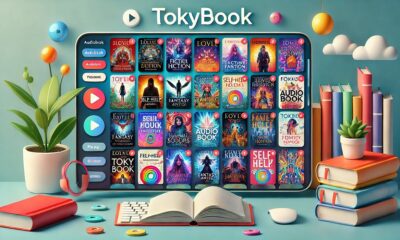TECHNOLOGY
Can AI Vocals Truly Mimic Human Emotions in Music?

The soul of music lies in its emotions and a single song can make you happy, sad, or feel nostalgic. To put the relevant emotions into a song, singers bring these emotions into reality with their voices and make every performance special. But now AI is trying to do the same. AI vocals are getting better at singing, but can they truly capture human emotions? Let’s discuss it in the following article!
Understanding AI-Vocals
Thousands of recordings of human voices. These programs learn patterns in singing, like how tones rise and fall or how certain words are stretched for emotional impact. Once trained, the AI can generate a voice that sings a song based on instructions like lyrics, pitch, or rhythm.
AI tools such as Vocal AI are popular today. They help create songs where no human singer is directly involved. But is this enough to make people feel something?
Why do Emotions Matter in Music?
Music without emotion is like a picture without color. It feels incomplete. When a human sings, their voice carries feelings like happiness, sadness, or anger. These emotions come from personal experiences and memories.
For example:
- A breakup song sung by someone who has felt heartbreak sounds raw and real.
- A celebration song feels uplifting when the singer’s joy shines through.
Listeners connect deeply with music because they sense the performer’s emotions. So, for vocal AI to compete, they must do more than just sing, they must convey feelings.
How Vocals AI Mimic Emotions?
AI doesn’t “feel” emotions, but it uses tricks to mimic them. Developers program it to change tones, rhythms, and speeds based on the type of song. For example:
- In sad songs, AI might use softer tones and slower rhythms.
- In upbeat songs, AI adds energy with faster tempos and higher pitches.
While these adjustments make the singing sound emotional, it’s important to remember that AI doesn’t truly understand the feelings behind the song. It follows patterns, not its heart.
Comparing AI-Vocals to Human Singers
To decide if AI vocals truly mimic human emotions, let’s compare them side by side:
| Feature | Human Singers | AI-Vocals |
| Emotion | Comes from real feelings. | It can mimic based on data patterns. |
| Flexibility | Adjusts emotions in real time. | Pre-programmed, less spontaneous. |
| Authenticity | Unique and personal. | Feels robotic to some listeners. |
| Consistency | It may vary between takes. | Always performs the same. |
From this, we see that while AI-powered vocals do well with consistency and technical precision, they struggle with authenticity.
Where do AI-Vocals shine?
AI vocals might not replace human singers, but they are useful in many ways:
- Budget-friendly: Small creators can use AI instead of hiring singers.
- Customization: AI can produce unique or experimental voices that don’t exist in real life.
- Accessibility: Beginners can create songs without needing a recording studio.
For example, an indie artist could use Vocal AI to produce a demo song without spending too much.
The Future of Vocals AI
AI technology improves every day. Researchers are finding ways to make AI voices sound more human. In the future, AI vocals might get so good that most people won’t notice the difference. However, the emotional depth that comes from human experiences might always set real singers apart.
People Also Ask!
What are AI-vocals?
They are singing voices generated by software that mimics human singers.
Why are emotions important in music?
Emotions help listeners connect with the music and make songs memorable.
Can AI-powered vocals express real emotions?
In reality, AI is only capable of simulating emotions by adjusting tones and rhythms, but it doesn’t truly feel emotions.
How are AI-vocals used today?
They are used for creating songs, especially in electronic and experimental music, or by creators on a budget.
Will AI replace human singers?
AI may complement human singers but lacks the personal touch that comes from real experiences.

 BUSINESS8 months ago
BUSINESS8 months agoService Top: Understanding Role, Dynamics, and Consent in Relationships

 TECHNOLOGY7 months ago
TECHNOLOGY7 months agoSSIS 858: Everything You Need to Know

 GUIDE6 months ago
GUIDE6 months agoLookmovie2.to Legit: A Detailed Review of Safety and Features

 FASHION8 months ago
FASHION8 months agoDIY Tips to Customize Your Orange Prom Dress and Stand Out

 GUIDE7 months ago
GUIDE7 months agoTokybook: Your Gateway to the World of Audiobooks

 TECHNOLOGY7 months ago
TECHNOLOGY7 months agoUnderstanding Libgen: The Ultimate Free Ebook Library

 GUIDE8 months ago
GUIDE8 months agoLeague of Graphs: The Ultimate Guide to League of Legends Stats and Analysis

 GUIDE7 months ago
GUIDE7 months agoLook at All Those Chickens: The Story Behind the Viral Meme
















